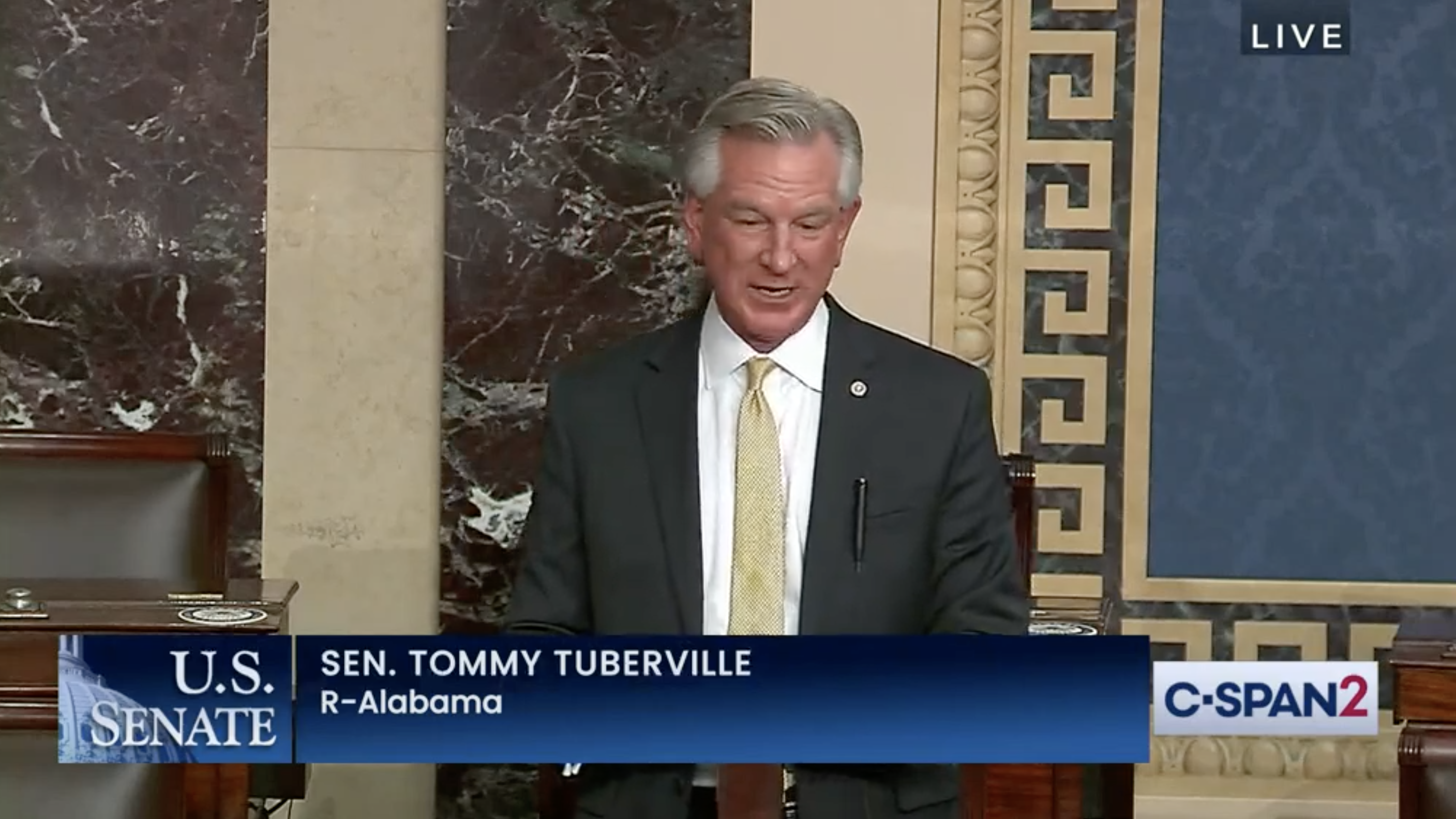Alabama Sen. Tommy Tuberville, R-Alabama, introduced the Stop Settlement Slush Funds Act to ensure that when the federal government settles a lawsuit, settlement funds will go only to the victims, the injured parties in the dispute, or the Treasury — not outside groups.
“It should be alarming to every tax-paying citizen that the government could turn federal settlement funds into fuel for activist groups that exert power and influence over Washington,” Tuberville said. “When the federal government settles a case, the settlement dollars should go to the victims or the Treasury – period. Unelected bureaucrats should not have the ability to direct settlement funds to progressive organizations under the guise of ‘donations,’ especially when these groups could turn right around and use that money to put pressure on members of Congress to vote with their agenda. This weaponizes settlement funds to push progressive policy agendas that Alabamians don’t want. It’s the swamp at its worst.”
Tuberville’s bill, the Stop Settlement Slush Funds Act, would prohibit settling parties in a federal dispute from reducing their punishments by making “donations” to outside organizations.
This bill would end the picking of special interest groups to benefit from settlements. For example, under President Obama’s Department of Justice, settling parties were forced to pay a portion of their settlement obligations, under the guise of “donations,” to outside groups of the Department’s choosing that overwhelmingly pushed a partisan agenda.
This practice turned federal settlements into liberal slush funds. This practice was halted under President Trump’s Department of Justice. Tuberville warned that without legislative action, the Biden administration could, once again, allow this practice to continue in order to bolster their progressive policy agenda.
“One of the many important roles of the Department of Justice is to represent the United States in civil and criminal trials,” Tuberville said in a speech on the Senate floor. “Sometimes the DOJ decides that a pre-trial, monetary settlement for a lawsuit is the best route to take. The DOJ directs the money from the settlement to the victims or [to the Treasury.] That’s the way our system is supposed to work; but during the Obama administration, the DOJ took a different course. Rather than direct settlement money to victims, the DOJ pushed the defendants to give the money instead to third-party organizations favored by the department. This was a slush fund for groups chosen by the DOJ. And these third parties often had nothing to do with the lawsuit.”
“[W]hen companies like JP Morgan, Bank of America, or Citi Group had to pay settlements based on mortgage lending practices, the DOJ intentionally directed millions of dollars to liberal activist groups,” Tuberville said. “Here’s an email from the Office of the Associate Attorney General in 2013, talking about the DOJ’s settlement with JP Morgan. ‘Can you explain to Tony the best way to allocate some money toward an organization of our choosing? We have been discussing having the agreement provide that JPM agreed to pay $9 billion but that, if, by the time we sign the settlement agreement, JPM has given $60 million to X they will only have to pay $8 billion.’”
“From Bank of America alone, the National Council of La Raza – now known as Unidos U.S. – received $1.5 million dollars,” Tuberville said. “The National Urban League received $1.2 million dollars. VOICE got another $1 million dollars. This won’t shock you, but both La Raza and the Urban League were big supporters of President Obama’s agenda.”
“In total across the federal government, the money directed to third parties added up to a total of $668 million dollars, according to the non-partisan Regulatory Transparency Project,” Tuberville said. “Out of that $668 million, at the end of the day they could only locate $9.5 million – which is 1.4% of the total money given. We don’t even know exactly where, or how, the rest of this money was spent.”
“Folks I’ve got one word for you on this: this is called corruption,” Tuberville said. “This is the swamp. The fact that this practice ever existed should make Americans’ blood boil. Political appointees, at one of the most powerful departments in the country, used their position of power to extract money from companies and then they gave that money to their like-minded friends. That’s what’s wrong with Washington, D.C.”
“We’ve grown used to hearing about this type of behavior from dictatorships around the world, like Russia or Venezuela,” Tuberville said. “We should not – we cannot – accept this type of behavior in the United States of America.”
“Now with a new president in office, and with so many high-profile Obama administration retreads throughout the administration and in the White House, this corrupt practice could, and probably will, return,” Tuberville said. “Congress cannot allow this to happen. I don’t care if it’s a Republican or a Democrat in the White House – the power of the purse lies with us: the folks in this building. We need a permanent fix. Earlier today I introduced the Stop Settlement Slush Funds Act. This bill would ensure that all settlement funds would go first to the victims, and then to the Treasury. No third party. Let’s ensure our federal government works on behalf of all of its citizens – not just the ones with connections to people in power.”
Tuberville was elected to the Senate in 2020 and serves on the Senate Armed Services, Agriculture, Veterans’ Affairs, and HELP Committees.











































